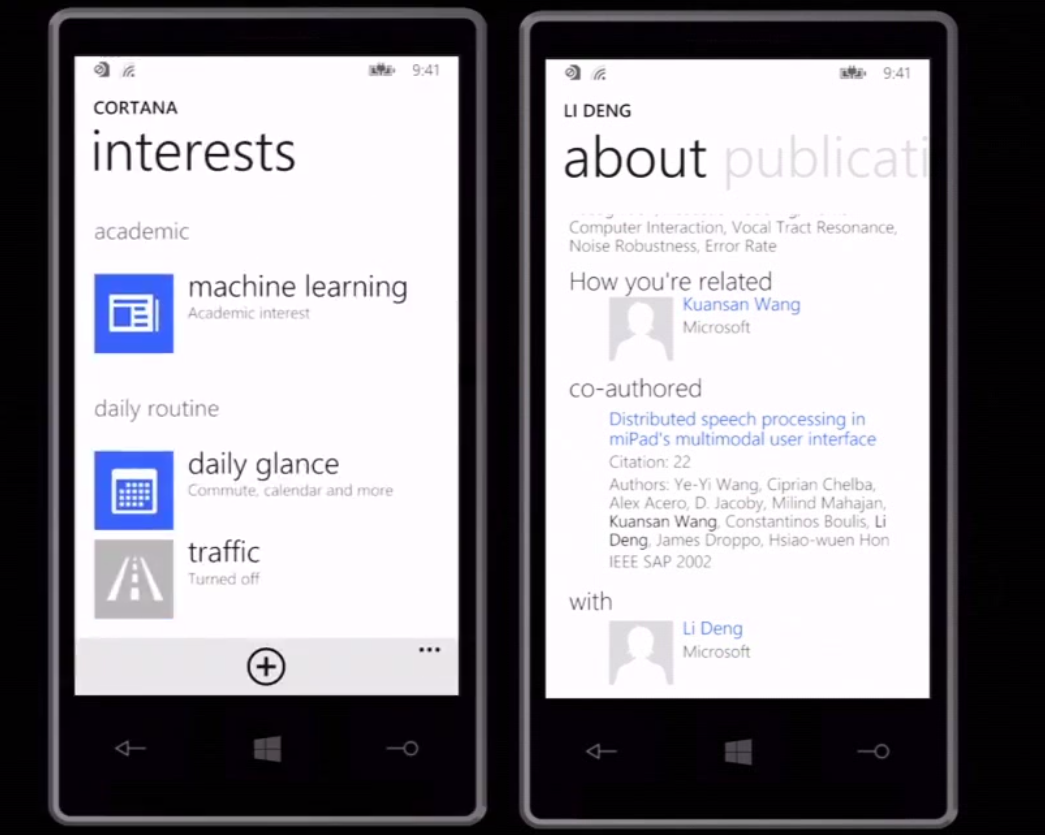Microsoft's Cortana is becoming a seamless research tool for scholars early next year

All the latest news, reviews, and guides for Windows and Xbox diehards.
You are now subscribed
Your newsletter sign-up was successful
Microsoft's foray into the personal assistant business with Cortana opens up many opportunities including integration with other branches of knowledge. One area that may be unfamiliar to the general public is Microsoft's work with Academic Search http://(academic.research.microsoft.com), which is a general search tool for finding articles on particular types of inquiry or the people in those science fields. Indeed, Microsoft Research used to have a Windows Phone 7 app to use this service.
Microsoft Research just published a new video where they discuss how Academic Search and Cortana are merging in early 2015. The demonstration was given at the annual Microsoft Research Faculty Summit where the presenters asked how they could turn Cortana into a research assistant and it follows upon the revelation of Project Adam, which we detailed yesterday.
The difficulty in the task for Cortana is discerning names e.g. Yu Dong, a researcher at Microsoft. In a demonstration question about Microsoft researcher Yu Dong, Cortana recognized him as "You don't" or "U Dong." However, in a newer test version of Cortana, the AI can distinguish the difference, bringing up Yu Dong the researcher, including professional and biographic information. Delving down deeper, Bing brings up a detailed about page, publications, citations, coauthors and how a person is associated to you, a sort of "seven degrees" connection.
Cortana can use this information to recommend talks that academics should attend, or give a personalized schedule based off of research interests. In fact, through Cortana's Notebook feature, which lets users specify interests, scientists can enter in precise research topics for Cortana under a new Academics category. Cortana then recommends papers and talks to the user without them searching for it, much like how Cortana's news works now on Windows Phone 8.1

The goal of this project is obviously to make Cortana significantly more useful search tool for professors and researchers, by letting Cortana map the academic world on a lexical and information level. Consequently, someone doing research could inquire within Cortana about other scholars or have topics brought to their attention, all powered by Bing and Microsoft's Academic Search engine.
Microsoft hopes to have Cortana, Bing and Academic Search integration by early 2015, and they are asking professionals in academia to head to https://www.microsoft.com/en-us/ to build up their scholastic profile to build "the most accurate representation" for their search engine.
To watch presentation yourself, head to the 36-minute mark in the video.
All the latest news, reviews, and guides for Windows and Xbox diehards.
Source: Microsoft Reasearch; Thanks, @shashank_green, for the tip!

Daniel Rubino is the Editor-in-Chief of Windows Central. He is also the head reviewer, podcast co-host, and lead analyst. He has been covering Microsoft since 2007, when this site was called WMExperts (and later Windows Phone Central). His interests include Windows, laptops, next-gen computing, and wearable tech. He has reviewed laptops for over 10 years and is particularly fond of Qualcomm processors, new form factors, and thin-and-light PCs. Before all this tech stuff, he worked on a Ph.D. in linguistics studying brain and syntax, performed polysomnographs in NYC, and was a motion-picture operator for 17 years.

